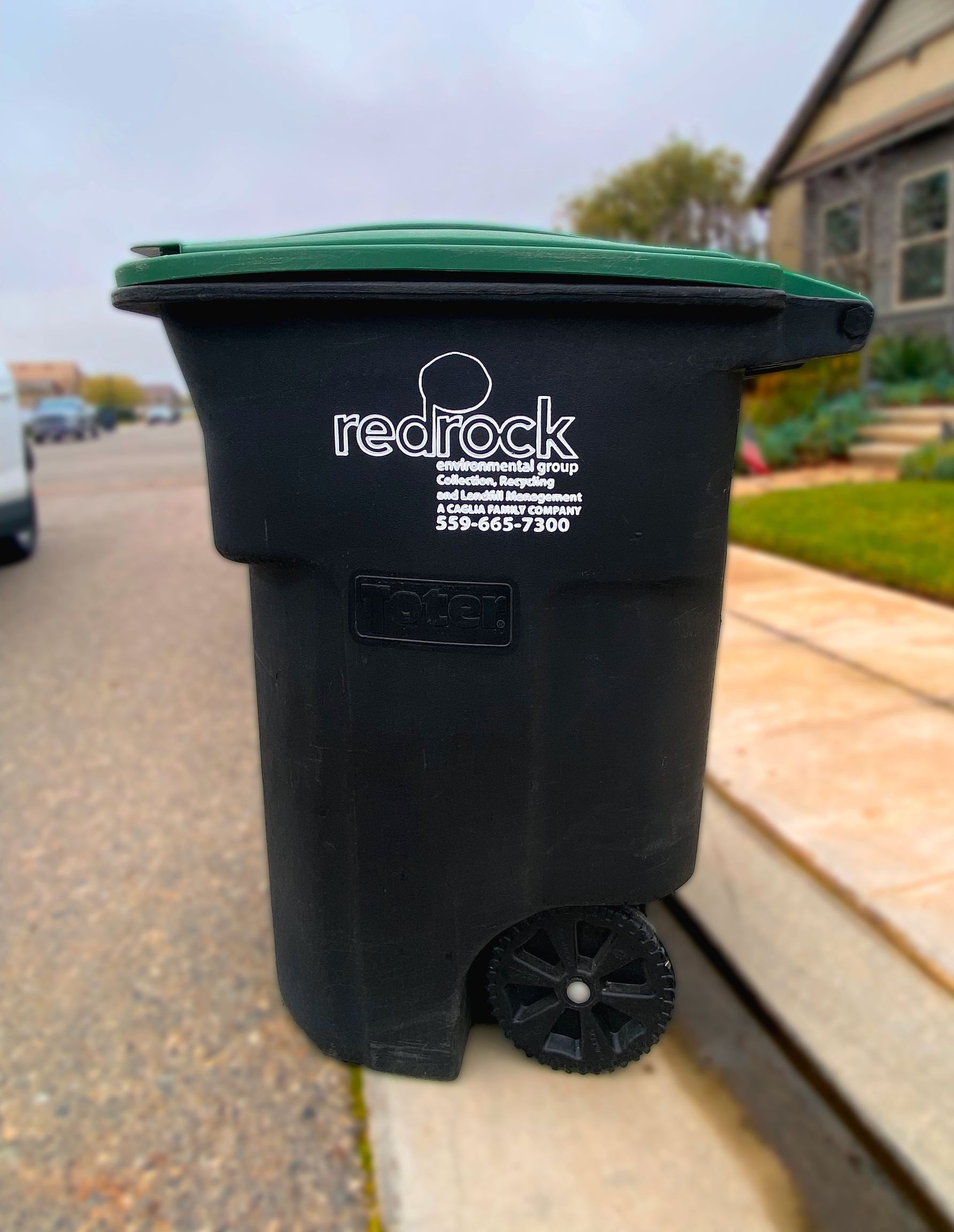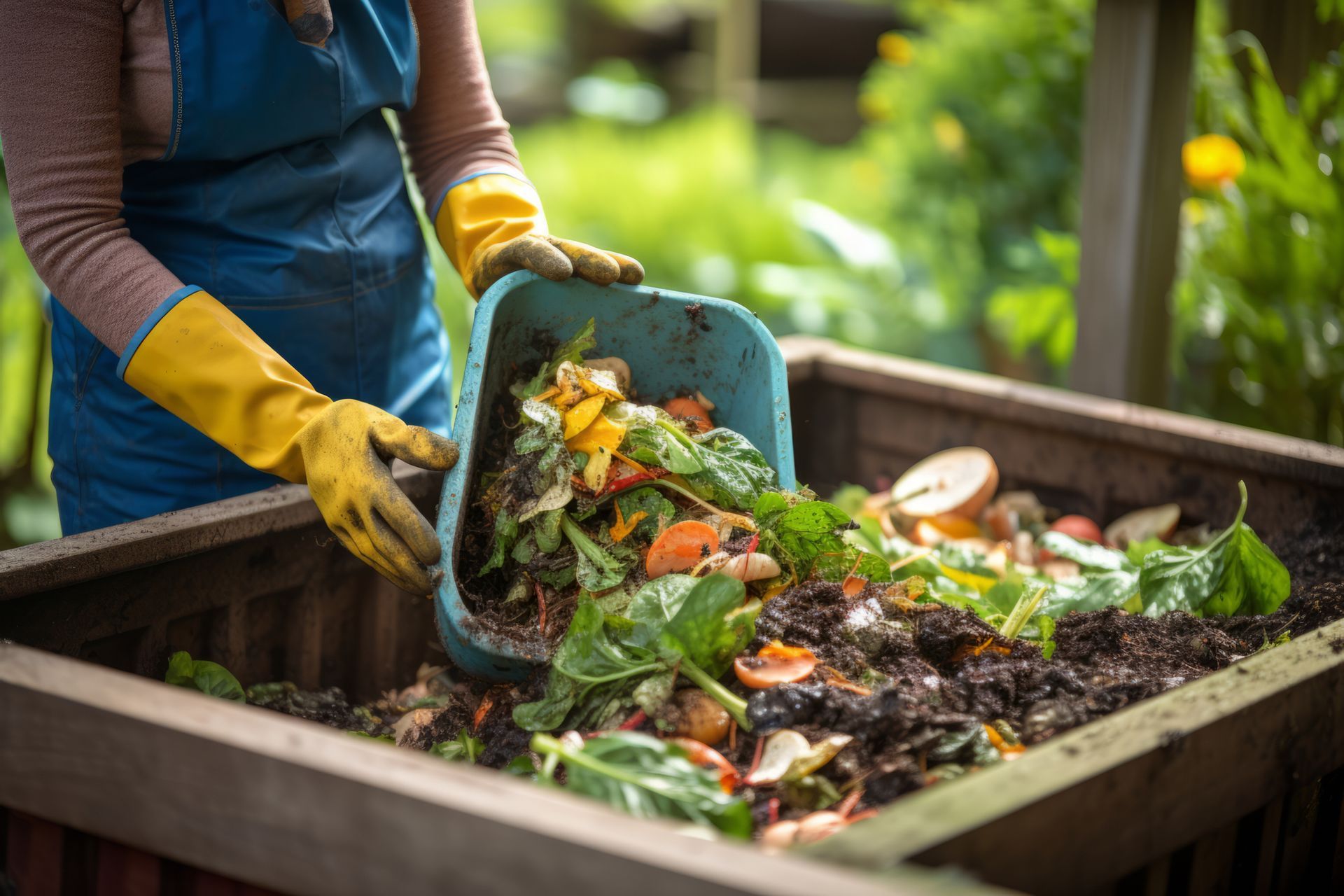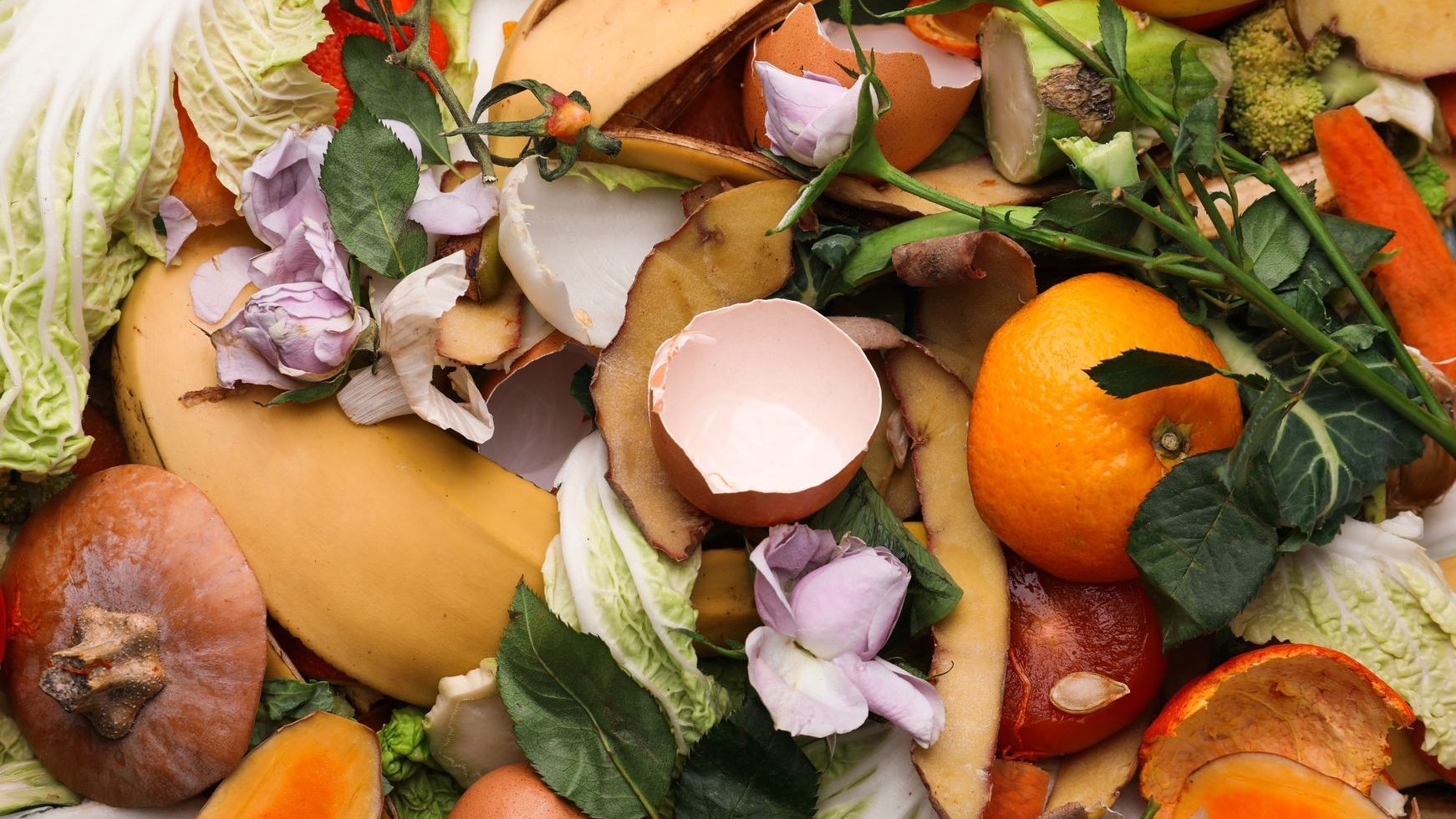California's SB 1383 in Madera County's designated zones began July 1, 2025
Key Goals of SB 1383:
- Divert 75% of organic waste (like food, yard debris, and paper) from landfills.
- Recover 20% of edible food waste to help feed Californians in need.
- Reduce methane emissions, a potent greenhouse gas produced by organic waste in landfills.
Why Does SB 1383 Matter?
Organic waste makes up about 50% of California’s waste stream and is the largest contributor to methane emissions in landfills.
By diverting this waste, SB 1383 helps:
- Combat climate change.
- Conserve resources.
- Support food recovery efforts and help alleviate food insecurity.
Are you in the SB1383 Zone? Find Out Here:
This link takes you to Madera County's Waste Collection Service Lookup Map.
TIP: RIVERSTONE AND TESORO VIEJO DO NOT CURRENTLY FALL IN THE SB1383 ZONES.
TIP: SB1383 ZONES ARE STRIPED IN THE MAP. USE THE MAP LEGEND TO DETERMINE IF YOUR ADDRESS FALLS IN THE STRIPED AREA.
3 Ways to Comply with SB1383 in Madera County Starting July 1, 2025

1. Subscribing to weekly organic waste collection services provided by Redrock Environmental Group.
Sign up for services on-line, by phone, or in person. The rate for residential organics collection in all SB1383 zones is $19.82 per month. This service includes a 96 gallon cart that will be collected on a weekly basis.
The rate for commercial organics collection in the SB1383 zone starts at
$76.51 per month for a 64 or 96 gallon cart that is collected on a weekly basis.
- 64 gallon carts are provided to businesses that produce food waste and do not produce green waste.
- 96 gallon carts are provided to businesses that produce food
and green waste.
THERE IS NO DELIVERY FEE FOR THE ORGANICS WASTE CARTS.

2. Self-hauling source separated organic waste to a community composting site, e.g. Fairmead Landfill or the North Fork Transfer Station.
Generators are to follow all Madera County codes regarding accumulation of waste at their properties.
On June 17, 2025, the Madera County Board of Supervisors approved FREE disposal of food waste at the Fairmead Landfill and North Fork Transfer Station.
Restrictions:
Food waste dropped off at these locations must be contaminant free: no plastics, no trash, no utensils, no packaging, no bags.
Limit 64 gallons per visit.
Self-haulers that are commercial businesses, including landscapers, are required to maintain certain records if they choose to self-haul. CalRecycle developed the Recordkeeping Tool for Self-Haulers to assist self-haulers in meeting the record-keeping requirements.

3. Managing organic waste on site at the generator’s premises, i.e. composting.
All listed compost sites will be subject to routine audits to verify compliance.
Another alternative option is animal feed.
Under California's Senate Bill 1383 (SB 1383), "animal feed" refers to products with remaining nutritional value that are suitable for feeding livestock or other animals, excluding those meant for human consumption or as pet food.
Business Requirements
Businesses are required to comply by:
- Adopting one of the three methods of compliance addressed in "3 Ways to Comply with SB1383 in Madera County."
- Provide collection containers for organic waste to employees, contractors, tenants, and customers on the commercial business premises.
- Arrange to recover the maximum amount of edible food that would otherwise be disposed.
- Request a waiver. Please see "Can I apply for a waiver?" in the FAQ section. For questions regarding the waiver process, please contact the Madera County Public Work Department at (559) 675-7811.
New!
Business Waiver
Please mail, email or fax this
completed form below to:
Madera County Public Works Department
200 W. 4th Street Suite 3100, Madera, CA 93637
FAX: 559.675.7631
SolidWaste@maderacounty.com
WHAT IS ORGANIC WASTE?
Green Container - Organics
List of Services
-
GREEN WASTEList Item 1
- Flowers
- Grass
- Hay
- Leaves
- Tree Trimmings
- Untreated Wood
- Yard Trimmings
-
FOOD SOILED PAPER
- Coffee Filters
- Napkins (natural/kraft)
- Paper Bags (kraft/brown - no print)
- Paper Food Containers (uncoated - no gloss print)
- Paper Plates (uncoated - no gloss print)
- Pizza Boxes (brown - no ads or gloss print)
- Tea Bags
-
FOOD WASTE (FRESNO COUNTY & MADERA COUNTY SB 1383 ZONES)
- Bread/Grains
- Coffee Grounds
- Egg Shells
- Fruits & Vegetables
- Meat/Bones
- Nut/Seed Shells
- Scraps/Skin/Peels
How to Fight Odors
How to reduce odor and pests in your curbside cart.
- Drain excess liquid from food scraps
- Freeze/refrigerate scraps before adding to the organics cart
- Add food scraps and food-soiled paper to a paper bag.
- Sprinkle the inside of the organics cart with baking soda.
- Line the bottom of your organics cart with paper bags or newspaper or by layering yard trimmings, then food scraps.
- Bring the organics cart to the curb every week for your service day.
- Do not use pesticides in your organics cart.
- Store your carts in a shaded area.
- Be careful of storm drains. If needed, rinse carts into landscaped areas only and avoid discharging to storm drain systems and neighboring properties.
Penalties for Non-Compliance
Compliance with the County's ordinance will be monitored randomly through compliance reviews, route reviews, investigation of complaints, and an inspection program. Residents and business owners will be provided with warnings and educational material to aid in compliance prior to fines being issued.
Madera County may impose penalties for non-compliance in amounts listed below.
- First violation: $50-$100
- Second violation: $100-$200
- Third and subsequent violations: $250-$500
READ MADERA COUNTY'S MUNICIPAL CODE 7.24.146 - Organic waste enforcement authorized by SB 1383.
What Happens to Organic Waste?
The collected material is brought to a compost facility, where it is processed into nutrient rich compost for agricultural end-users.

